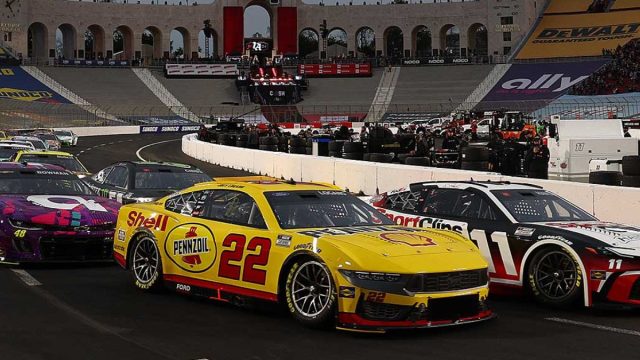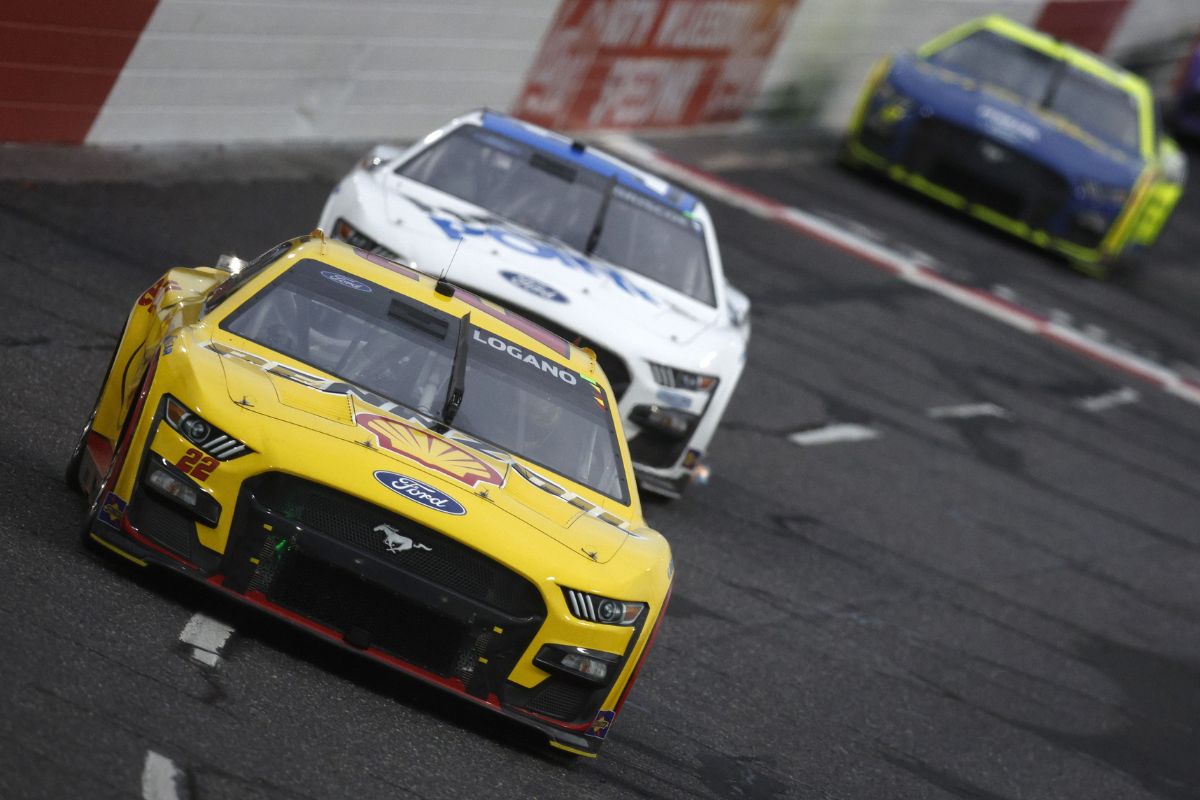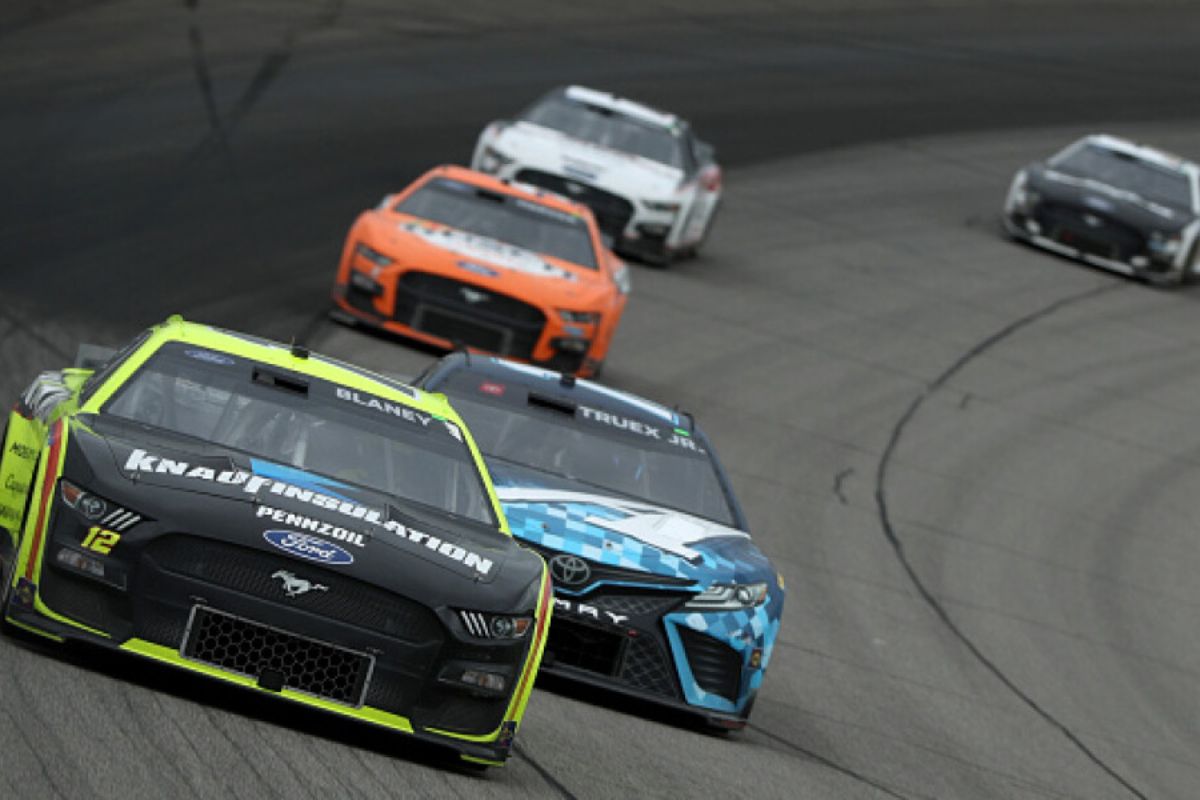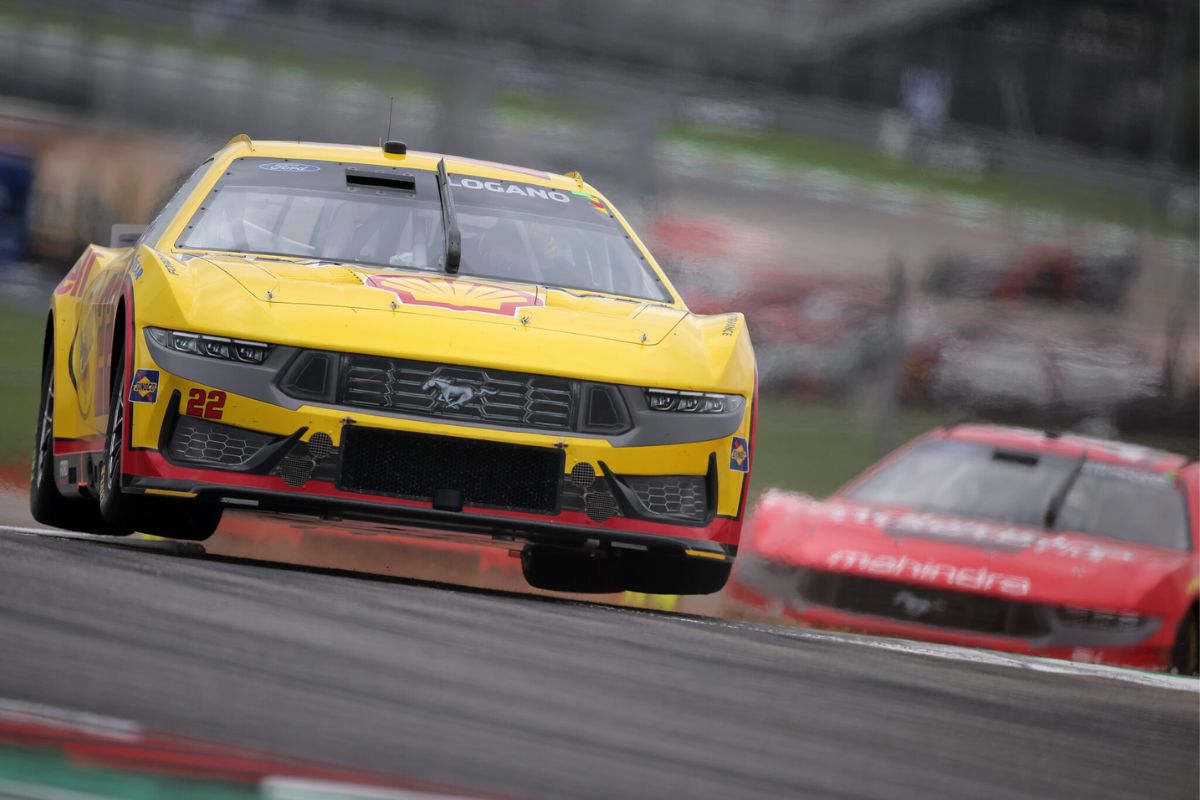Ford’s Struggles Vs Toyota’s Consistency: As the NASCAR season unfolds, the stark contrast between Ford’s ongoing struggles and Toyota’s consistent performance has become a focal point of analysis. Ford, historically a powerhouse in the circuit, has been grappling with a notable winless streak, leaving analysts and fans questioning the efficacy of their strategies and vehicle performance. Conversely, Toyota has successfully maintained a strong presence at the top of the standings, driven by a well-rounded team and a strategic approach that seemingly adapts seamlessly to varied track conditions.
Key Takeaways
- Toyota showcases strong performance with 11 wins, while Ford remains winless this season.
- Toyota’s balanced team includes both experienced drivers and promising young talent.
- Ford’s challenges attributed to performance gaps and strategic issues in car setups.
- Toyota dominates in various NASCAR series, highlighting their adaptability and strategic excellence.
- Ford’s longest winless streak since 1983 contrasts sharply with Toyota’s consistent top finishes.
Toyota Dominance at Dover International Speedway
Toyota’s strategic strength was clearly demonstrated at Dover International Speedway, where their drivers excelled beyond the competition and solidified their position in the NASCAR Cup Series standings. At this crucial point in the season, Toyota’s adept adjustment to the track’s unique demands and their thorough preparation were evident, resulting in a strong display of racing skills.
Martin Truex Jr., a seasoned veteran for Toyota, displayed his skill with a third top-five finish this season, moving closer to the top of the standings, now just 15 points behind the leader. This performance is not just a showcase of Truex’s abilities but also highlights the efficiency and reliability of the Toyota Camry XSE under high-stress race conditions. His consistent high finishes have become a cornerstone of Toyota’s strategy to gather steady points throughout the season, rather than relying only on sporadic race wins.
Denny Hamlin, another Toyota stalwart, contributed to the brand’s success by securing his third victory of the season, moving him to fourth in the standings and earning the highest tally of Playoff points at 17. This win at Dover, marked by strategic overtaking and excellent car performance, highlighted Toyota’s deep understanding of race-day dynamics and driver capabilities.
Furthermore, the presence of Tyler Reddick who won GEICO 500 and Ty Gibbs in the top ten further reinforces Toyota’s strategic use of young talent alongside experienced drivers, creating a balanced team dynamic that utilizes fresh energy and seasoned expertise. This blend not only boosts team morale but also strengthens Toyota’s championship aspirations, ensuring a strong presence in the upper ranks of the standings.
Ford’s Struggle and Chevrolet’s Lead in Manufacturers’ Standings
While Toyota celebrates success, Ford faces significant challenges this season, with Chevrolet leading the NASCAR manufacturers’ standings. Chevrolet’s dominance is illustrated by its 17 wins across all series, positioning it at the forefront of the competition. In contrast, Ford has not managed a single win, marking a significant struggle within the series. This gap is particularly glaring given the introduction of Ford’s Mustang Dark Horse, which, despite coming close, has failed to secure a top podium spot.
The difficulties Ford is encountering this season can be traced to several factors. To start, the performance gap between the vehicles is stark. Chevrolet’s cars have consistently demonstrated superior speed and reliability, which are critical NASCAR racing. Additionally, Ford’s strategies in race management and driver decisions have been less effective compared to its rivals, affecting their overall performance and ability to capitalize on race-day opportunities.
- Chevrolet’s Lead: Dominates with 17 wins, showcasing robust performance and strategic skill.
- Toyota’s Position: Holds a strong second place with 11 wins, maintaining competitive momentum.
- Ford’s Dilemma: Despite the promising debut of the Mustang Dark Horse, Ford remains winless, highlighting issues in vehicle performance and strategic execution.
Laps led by team in non-superspeedway races in 2024
(Excludes Daytona-Atlanta-Talladega) pic.twitter.com/PzCWEya1eh
— Trey Ryan (@TreyRyan99) May 1, 2024
Ford’s Longest Winless Streak Since 1983 and Upcoming Challenges at Kansas Speedway
Ford’s winless streak, the longest since 1983, poses significant challenges as they head into the upcoming Kansas Speedway race. This dry spell is highlighted by a stark contrast in performance, with Ford securing nine runner-up finishes in the Cup Series this season alone. Such a record not only emphasizes the close yet unfulfilled potential within the Ford camp but also highlights a growing concern as they prepare to face one of their toughest venues yet.
Kansas Speedway, known for its 1.5-mile tri-oval track, has recently been a bastion for Toyota, whose vehicles have dominated with five wins in the past six races. This dominance by Toyota at Kansas presents an additional layer of complexity for Ford’s strategists and drivers. The track’s variable banking and wide racing surface favor a high level of car optimization and strategic pit stops, areas where Toyota has excelled.
In response, Ford must utilize its engineering skills and deep understanding of aerodynamics to break this spell. The focus should be on optimizing car setups for improved tire wear management and fuel efficiency — critical factors at Kansas due to its high-speed demands and tire degradation rates.
Toyota’s Consistency in the 2024 Season
In the 2024 NASCAR season, consistency has been a hallmark of Toyota’s performance, supported by strategic placements and veteran contributions across different series. Their approach not only demonstrates depth but also a strategic expertise that keeps them competitive across different racing formats. This includes the Cup Series, the Truck Series, and the ARCA Menards Series, where their vehicles and drivers consistently perform at top levels.
- Jimmie Johnson’s Veteran Influence: Racing the #84 Toyota Camry XSE, Johnson’s experience and skill have been instrumental. His track record at Kansas Speedway includes three wins and numerous top finishes, bringing a veteran’s insight and stability to the team’s performance.
- Strength in the Truck Series: Toyota’s dominance in the Truck Series is evident with drivers Corey Heim, Taylor Gray, and Tanner Gray all ranking in the top 10 of the series points standings. Brett Moffitt’s return in the No. 1 Tundra TRD Pro is particularly notable, given his previous championship pedigree and success at tracks like Kansas Speedway.
- ARCA Menards Series Success: Toyota’s pursuit of a fourth consecutive win at Kansas Speedway in the ARCA Menards Series highlights their broader strategy of excellence and dominance. Their impressive track record in recent races at this venue showcases their ability to maintain high performance across different series and conditions.
Toyota’s Strong Performance and Ford’s Struggles in NASCAR
Toyota’s robust performance in the 2024 NASCAR season sharply contrasts with Ford’s ongoing struggles, particularly as they face another potential setback at the upcoming Kansas Speedway race. While Toyota has consistently delivered top-tier results, Ford’s teams have grappled with a series of performance issues that have left them trailing noticeably in the standings.
Toyota’s strategy has been characterized by a harmonious blend of innovation, reliability, and driver skill, which has propelled their vehicles to the forefront of nearly every race this season. Their ability to adapt quickly to different tracks and conditions has been a crucial factor in their success. On the other hand, Ford’s difficulties can be traced back to a lack of consistency in vehicle performance and strategic missteps during critical phases of the races.
As the teams head to Kansas Speedway, a track known for its high speeds and intense competition, Toyota’s well-oiled machine is expected to perform strongly, whereas Ford faces the challenging task of overcoming not just their rivals but also their internal shortcomings. The race will be a significant indicator of whether Ford can begin to reverse its fortunes or if Toyota will continue to dominate the season, further widening the gap in the standings.
News in Brief: Ford’s Struggles Vs Toyota’s Consistency
In analyzing the dynamics in the NASCAR season, the contrast between Ford’s struggles and Toyota’s consistent success is clearly delineated. Toyota’s strategic integration of diverse driver profiles and adaptability across different tracks has facilitated its dominance, particularly evident at Dover International Speedway.
Conversely, Ford faces significant challenges, marked by a historic winless streak and strategic missteps. These challenges highlight the critical need for Ford to reassess and improve its competitive strategies to regain prominence in the racing arena.
Our Reader’s Queries
Q. Why are the Fords behind in NASCAR?
A. Buescher pointed to a contributing factor: the sleek underbody design of the Next Gen car. Particularly noticeable on shorter tracks, this characteristic has posed challenges. “However,” Buescher noted, “we’re not alone in grappling with this issue.”
Q. Who has more wins in NASCAR Ford or Chevy?
A. Chevrolet leads the pack in success, boasting 42 titles, making it the most accomplished manufacturer. Following closely behind is Ford, with 17 titles to its name, securing its position as the second most successful contender.
Q. Does NASCAR use Ford engines?
A. The engine builders for each manufacturer are as follows: Chevrolet teams rely on ECR Engines and Hendrick Motorsports for their powerplants. Ford entrants turn to Roush-Yates Engines for their engine needs. Meanwhile, Toyota teams benefit from the expertise of Toyota Racing Development.
Q. How many races has Ford won in NASCAR?
A. As of 2023, Chevrolet holds the title as the most successful manufacturer, securing 851 race victories and clinching 42 manufacturers championships. Following closely behind is Ford, with 728 wins and 17 manufacturers championships, cementing its position as the second most accomplished contender.
ALSO READ: Ford’s Winless Streak: 2nd Longest Unsuccessful Streak



